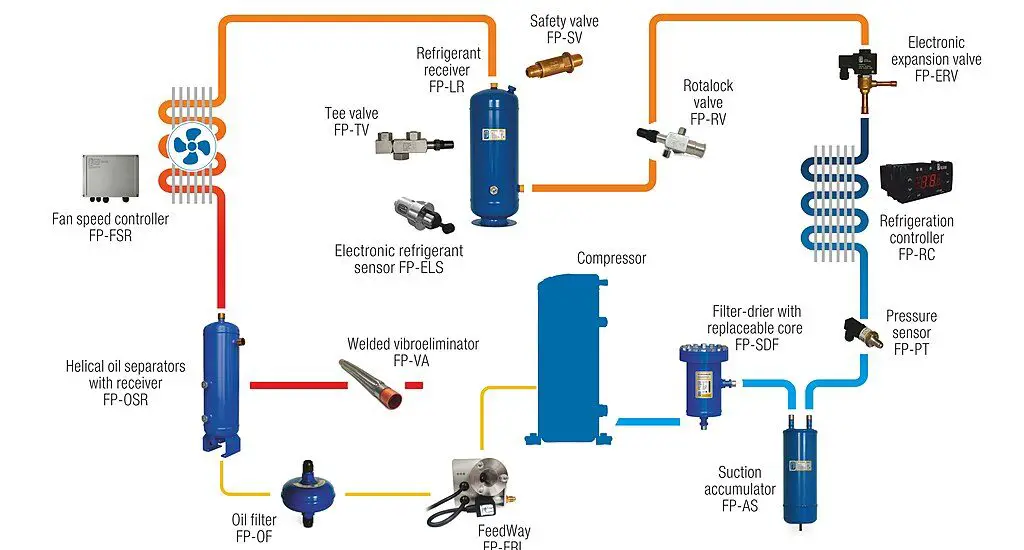How does a compressor work in a refrigeration system? This article offers an in-depth explanation, shedding light on each component and the overall functionality of the compressor in the refrigeration cycle.

Table of Contents
Types of Compressors
Understanding the types of compressors can help you better grasp how they work. The three main types are:
Reciprocating Compressors
These are the most commonly used compressors in domestic refrigeration and small commercial systems. They work much like a car engine, with a piston moving inside a cylinder to compress the refrigerant. They are durable and relatively cheap but can be noisy and less energy-efficient compared to other types.
Rotary Compressors
Rotary compressors are more common in commercial settings or high-capacity cooling systems. Instead of a piston, they use a rotor to compress the refrigerant. This design makes them quieter and more energy-efficient but often at a higher initial cost.
Scroll Compressors
These are the most modern among the three and are known for their high efficiency and quiet operation. Scroll compressors use two interlocking spiral-shaped pieces to compress the refrigerant. They are mostly used in premium domestic appliances and commercial refrigeration systems but are the most expensive of the three.
How Does a Compressor Work in a Refrigeration System? Step-By-Step
Understanding the mechanics of how a compressor works in a refrigeration system is essential for anyone interested in HVAC or refrigeration. Here’s how the process works in a step-by-step manner:
Initial Intake: The compressor starts the refrigeration cycle by sucking in low-pressure refrigerant gas from the evaporator coil. This gas is created when the refrigerant absorbs heat from the interior space you’re trying to cool.
Compression: Once the low-pressure gas is inside the compressor, it gets compressed to high-pressure and high-temperature levels using mechanical means such as pistons, rotors, or scrolls, depending on the type of compressor. This stage is crucial as it prepares the refrigerant for the condensation process.
Outlet: The compressed high-pressure and high-temperature refrigerant gas is then pushed out into the condenser coil. The condenser coil is usually located on the outside unit of the cooling system. Here, the refrigerant releases its heat into the atmosphere, cools down, and changes back into a high-pressure liquid.
Continuation: This high-pressure liquid refrigerant flows through an expansion valve where it experiences a sudden drop in pressure, cooling it further before it enters the evaporator coil to start a new refrigeration cycle. This continuous process keeps the indoor environment cool.
Check out these other articles…
What Makes a Refrigerator Compressor Go Bad? 3 Major Factors
Do Refrigerator Compressors Have Capacitors? Detailed Answer
Do Refrigerator Compressors Run All the Time? Quick Answer
Do Refrigerator Compressors Have Oil? Comprehensive Answer
Do Refrigerator Compressors Have a Reset Button? Answered
Significance of Compressors in Refrigeration Systems
The compressor is often dubbed the ‘heart’ of the refrigeration system for good reason. Just as the heart in the human body pumps blood to enable various bodily functions, the compressor in a refrigeration system circulates the refrigerant, enabling the system to absorb and release heat, thereby maintaining the desired temperature.
It’s vital for the compressor to work efficiently for the whole system to function. If the compressor fails, the refrigerant won’t circulate, the heat won’t get transferred, and the system will not be able to cool the space. Moreover, compressors are usually the most power-consuming component in the system. Hence, its efficiency directly impacts your energy bills.